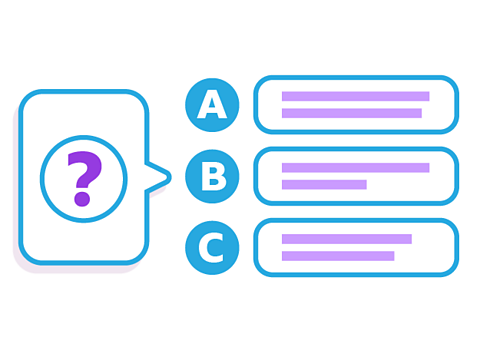Key points about object pronouns in Spanish

- Direct object pronouns are used to replace a nounThe name of a thing such as an object, a place or a person. Nouns are often described as naming words. that is the direct object of the verbWord used to describe an action, state of being or an occurrence..
- Indirect object pronouns are used to replace a noun which is not the direct object of the verb.
Direct object pronouns in Spanish
Direct object pronouns are used to replace a noun that is the direct object of the verb. They are used when talking about who or what an action is done to. For example, in the sentence 'I bought the book', the words āthe bookā can be replaced by 'I bought it'.
The direct object pronouns in Spanish are:
| Sorry, something went wrongCheck your connection, refresh the page and try again. | me |
| Sorry, something went wrongCheck your connection, refresh the page and try again. | you (singular - informal) |
| Sorry, something went wrongCheck your connection, refresh the page and try again. | him/it/you (singular - formal) |
| Sorry, something went wrongCheck your connection, refresh the page and try again. | her/it/you (singular - formal) |
| Sorry, something went wrongCheck your connection, refresh the page and try again. | us |
| Sorry, something went wrongCheck your connection, refresh the page and try again. | you (plural - informal) |
| Sorry, something went wrongCheck your connection, refresh the page and try again./Sorry, something went wrongCheck your connection, refresh the page and try again. | them/you (plural - formal) |
For example:
Sorry, something went wrongCheck your connection, refresh the page and try again. - I bought it.
Sorry, something went wrongCheck your connection, refresh the page and try again. - We found them.
Indirect object pronouns
Indirect object pronouns are used to replace a noun which is not the direct object of the verb. They are used when you want to talk about doing something ātoā or āforā someone.
For example:
I gave the money to her.
She gave the drink to him.
| Sorry, something went wrongCheck your connection, refresh the page and try again. | (to) me |
| Sorry, something went wrongCheck your connection, refresh the page and try again. | (to) you (singular - informal) |
| Sorry, something went wrongCheck your connection, refresh the page and try again. | (to) him/her/it/ or (to) you (formal) |
| Sorry, something went wrongCheck your connection, refresh the page and try again. | (to) us |
| Sorry, something went wrongCheck your connection, refresh the page and try again. | (to) you (plural - informal) |
| Sorry, something went wrongCheck your connection, refresh the page and try again. | (to) them or (to) you (formal) |
For example:
Di los libros a los niƱos. - I gave the books to the children.
Le di los libros. - I gave the books to them.
MandĆ³ la carta a Julia. - He sent the card to Julia.
Le mandĆ³ la carta. - He sent the card to her.
Escuchamos al cantante. - We listened to the singer.
Object pronouns - Mini quiz

Fill in the missing word in this sentence.
____ escuchamos.
We listened to him.
Le escuchamos.
We listened to him.
The correct indirect object pronoun is le which means (to) him or her or it.
Fill in the missing word from this sentence.
El hombre ____ siguiĆ³.
The man followed us.
El hombre nos siguiĆ³.
The man followed us.
The correct indirect object pronoun is nos which means (to) us.
Quiz - Object pronouns in Spanish
Practise what you've learned about object pronouns in Spanish with this quiz.
Now you have learned about object pronouns why not explore reflexive pronouns?
More on Pronouns
Find out more by working through a topic
- count3 of 9

- count4 of 9

- count5 of 9

- count6 of 9
